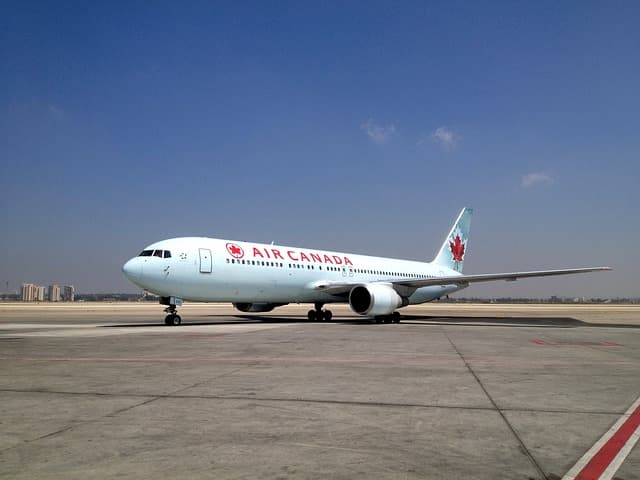Can I Still Come to Canada During COVID-19 (Coronavirus) Outbreak?

When thinking about the effect of the COVID-19 outbreak on immigration during previous outbreaks – such as H1B1 in 2008-9 or SARS, Ebola, and MERS – you should realize that immigration levels in Canada have generally remained stable or even increased when annual figures are looked at. So, unless SARS-CoV-2 (which causes the COVD-19 disease) becomes a dramatic pandemic, what is more likely is that there will be specific travel restrictions – some of which we’ll deal with in this article – until the outbreak lessens and then levels off or dies out.
Canada’s border is still closed to all non-essential travel due to the global pandemic due to COVID-19.
However, if you have a family member in Canada, you can travel to Canada even though the border is closed. The rules are different depending upon whether your family member is an immediate family member (close family) or an extended family member.
How to Reunite in Canada with an Immediate Family Member During the Pandemic
An “immediate family member” means:
- your spouse or common-law partner
- your dependent child or step-child
- your dependent child’s dependent child (i.e. your grandchild only if their parent is also your dependent child)
- your parent or step-parent or your in-law
- your guardian.
In order to get on the plane to come to Canada, you will need to provide the following:
- a valid passport (or other travel document)
- proof that you are related (see above) to a Canadian citizen or permanent resident
- proof that you are staying in Canada for 15 days or longer OR
- proof that you are traveling because you have to (a funeral, etc.)
How to Prove Your Family Member is Canadian
You need a copy of one of the following to show your Canadian family member has appropriate status for you to come to Canada:
- your family member’s Canadian passport
- your family member’s Canadian citizenship certificate or card
- your family member’s Canadian birth certificate
- your family member’s PR Card
- your family member’s valid Permanent Resident Travel Document
- your family member’s Certificate of Indian Status
How to Prove Your Relationship with Your Immediate Family Member
You also need to prove your relationship with your family member. You must provide one of the following:
- a marriage certificate, if the immediate family member is your spouse
- proof of common-law status (proof of shared address), if the immediate family member is your common-law partner
- a birth certificate with both your name and your family member’s name on it, if the immediate family member if your parent or child
- a Confirmation of Permanent Residence for Family Class Sponsorship.
If you have none of these, contact Immigroup for help proving this relationship.
How to Come to Canada During the Pandemic If Your Family Member is Extended Family, Not “Immediate”
You can also come to Canada as a visitor during the pandemic if your family member is part of your “extended” family, and is not just a close relative. In this case, “extended” means:
- your exclusive romantic partner, whom you have been dating for at least one year, and whom you’ve seen in person at least once
- your non-dependent (adult) child
- your grandchild (must be a dependent of your adult child)
- your sibling, half-sibling or step-sibling
- your grandparent.
If you are not a relative of a Canadian but are related to someone who is related to a Canadian in one of the above ways, you may also be eligible.
If you are related to a spouse or common-law partner of a Canadian, who is eligible to come to Canada during the pandemic due to their immediate family in Canada, you must be:
- non-dependent (adult) child – the Canadian is your father- or mother-in-law
- grandchild (dependent child of a dependent child) – the Canadian is your other grandparent, but your parent is still a dependent
- sibling, half-sibling, or step-sibling – the Canadian is your brother- or sister-in-law (or half-brother-in-law or step-brotherin-law or half-sister-in-law or step-sister-in-law)
- grandparent (the Canadian is your grandchild’s spouse)
The same rules apply if your relative is in an exclusive romantic relationship with a Canadian (see above) except that siblings, half-siblings and step-siblings are ineligible in this case.
How to Prove Your Relationship with Your Canadian Extended Family Member
If you need help filling out the application or check the status of an existing application please contact us at 1-866-760-2623 ext 1. Immigroup is a private immigration firm that deals with applications like this one.
There is a special application to come to Canada during the pandemic to visit an extended family member, it’s called the application for authorization and statutory declaration IMM0006. The following must happen for you to come to Canada:
- Your Canadian family must complete the IMM0006 application, then they send it to you
- You must sign the completed IMM0006 application, then you send it back to them
- Your family member must sign the IMM0006 application in front of a Notary Public, Commissioner of Oaths, Justice of the Peace or eligible lawyer, then they send you a copy
- You must submit the IMM0006 plus a copy of proof of your family member’s Canadian status (see above for the list of documents) to IRCC by email for permission to travel to Canada
- You must print off a copy of the written permission to travel to Canada and bring it with you to the airport.
The email to IRCC (step 4) must include:
- your full name
- your date of birth
- if you have an application in process
- how you applied for your visa (online or by paper)
- your application number and unique client identifier (UCI)
- your passport number
- a detailed reason for travel
- the dates you plan to travel
- where you live now (current country of residence)
- your supporting documents to show you’re eligible to travel to Canada at this time (for example, the application for authorization and statutory declaration for extended family members).
At the airport, you need to provide the same evidence as those with immediate family members travelling to Canada:
- a valid passport (or other travel document)
- proof that you are related (see above) to a Canadian citizen or permanent resident
- proof that you are staying in Canada for 15 days or longer OR
- proof that you are traveling because you have to (a funeral, etc.)
Anyone travelling to Canada must follow all airline requirements regarding COVID-19 safety precautions.
If you need help filling out the application or to check the status of an existing application please contact us at 1-866-760-2623 ext 1. Immigroup is a private immigration firm that deals with applications like this one.
Our March 2020 Article about Canada’s covid restrictions follows below:
When thinking about the effect of the COVID-19 outbreak on immigration during previous outbreaks – such as H1B1 in 2008-9 or SARS, Ebola, and MERS – you should realize that immigration levels in Canada have generally remained stable or even increased when annual figures are looked at. So, unless SARS-CoV-2 (which causes the COVD-19 disease) becomes a dramatic pandemic, what is more likely is that there will be specific travel restrictions – some of which we’ll deal with in this article – until the outbreak lessens and then levels off or dies out. If you have successfully applied to immigrate or to travel to Canada and you are coming from a country like China, there may be additional medical exams required, and your plans may be delayed. But at this point, it seems unlikely that you will be turned down.
Let’s see what measures Canada has put in place in response to the latest coronavirus outbreak.
According to IRCC’s Operational Bulletin 669 issued on February 7, 2020 and modified on February 26, 2020:
- It concerns procedures for temporary & permanent resident applications, as well as the procedures for citizenship applications in view of the coronavirus outbreak.
- The IRCC’s International Network is the department that provides support to Global Affairs Canada (GAC) on everything relating to documents required as well as the process for evacuating people from China to Canada.
- Special measures are also being put in place for permanent residents and foreign nationals from China, as well as for foreign nationals from Iran and the Republic of Korea.
Procedures for immigration applications already in progress
- IRCC offices in China and Hong Kong are operating with essential staff only. All visa application centres (VACs) in China are closed. Only the VAC in Hong Kong and the VAC Contact Centre for China are open and operating normally according to the bulletin issued by IRCC.
- IRCC visa offices in other countries are operating normally.
- Applications will not be refused because of non-compliance but applications in process may experience delays.
- While there are no direct orders to expedite (process more quickly) applications, the Migration Program Manager of each IRCC office has the discretion to expedite the application due to special circumstances if they chose to do so.
- Urgent applications for temporary residence in Canada should be taken care of at the following IRCC offices:
- In China
- In Hong Kong
- In Ankara (Turkey)
- In Manila (which will handle applications from South Korea).
- The following additional documents might also be requested by IRCC offices processing applications
- Police certificates
- Biometrics
- Passports
- Medical examination reports;
- Any other documents issued by authorities in China, Iran, or South Korea that are deemed necessary to process an immigration application to Canada.
When you receive a letter from IRCC requesting additional documents you will have 90 days to provide them. If due to special circumstances you cannot provide the documents within 90 days, you will be given an additional 90 days.
Even though your BIL (biometrics instruction letter) says you have 30 days to provide biometrics, you will be given 90 days as in the case of any other document request. This is because IRCC is reportedly unable to change the details in biometric instruction letters.
- In China you won’t be able to provide biometrics or submit your travel document (usually passport) for a visa stamp through the VACs because they are closed until further notice. You may still submit online applications.
- In Iran, because of travel bans, you may be unable to access VACs in order to submit biometrics of travel documents. You may still apply online.
- In Korea you may experience delays in obtaining Medical Immigration Examinations (IMEs) because panel physicians are facing lots of demand for these examinations.
How Does COVID-19 Affect Temporary Residents (Visitors, Workers, Students)?
If you are a Temporary Resident Applicant with urgent travel requirements:
- In China, if you need urgent processing for your temporary residence application, you should apply online and then indicate that your application requires urgent processing by sending an email to the following address: [email protected]. These applications will be assessed on a case-by-case basis by immigration officers.
- In Iran, if you need your temporary residence application to be processed urgently, you should apply online and then go here to fill out a webform indicating you need urgent processing. Please select NO in response to the following question: Is your application being processed by an office OUTSIDE Canada? Then complete the rest of the form.
- In South Korea, if you need your temporary residence application to be processed urgently, you should apply online and then go here to fill out a webform indicating you need urgent processing. Please select NO in response to the following question: Is your application being processed by an office OUTSIDE Canada? Then complete the rest of the form.
Program managers at IRCC have the authority to waive biometrics overseas for urgent and/or humanitarian or compassionate reasons should this be deemed necessary.
Temporary Residents in Canada who can’t travel abroad because of travel restrictions
- There will be NO fee waivers for any temporary residence applications or extensions. All fees have to be paid.
- Foreign nationals who have an extension application in process will have implied status (you will continue to have legal status) and may remain in Canada.
- Foreign nationals whose temporary status has expired may apply for restoration but must pay the fee.
How Does COVID-19 Affect Permanent Resident Travel Document (PRTD) Applications for Canadian PRs Oustide of Canada?
- In China if you require a permanent resident travel document call the VAC Contact Centre for instructions at +86 4000 88 66 37. Right now, permanent resident applicants are being asked to submit their Permanent Resident Travel Document (PRTD, usually in your Chinese passport) by courier to the embassy in Beijing. Contact IRCC Beijing by email only in exceptional cases when you have very urgent travel needs.
- In Iran if you require a PRTD to return to Canada, should contact IRCC via the webform here. Answer YES to the question Is your application being processed by an office OUTSIDE Canada? Then select Turkey – Ankara as the visa office processing your application. Then complete the rest of the form. Only contact IRCC Ankara by email if you require very urgent travel outside of Iran. Submit your application directly to the embassy in Tehran by courier.
- In South Korea if you require a PRTD to return to Canada, contact IRCC via the webform here. Answer YES to the question Is your application being processed by an office OUTSIDE Canada? Then select Philippines – Manila as the visa office processing your application. Then complete the rest of the form. Only contact IRCC Manila by email if you require very urgent travel outside of Iran. Submit your application directly to the embassy in Seoul by courier.
How Does COVID-19 Affect Those Immigrating to Canada (with PR Visas/COPRs)?
If you have a Confirmation of Permanent Residence (COPR) and a Permanent Resident Visa (PRV) and you inform the IRCC by webform here that you cannot travel at the current time, your COPR and/or PRV will be placed on hold on file. If you discover that you can travel again before your COPR and PRV has expired, then you will be encouraged to use your current COPR and PRV to travel to Canada.
If you are unable to travel before your COPR and PRV have expired immigration officials will re-open your application and flag it for review in 90 days. When you are able to travel and inform IRCC of this, your re-opened application may be approved providing that all your documents are still valid, including of course passports and your Medical Immigration Examination (IME).
In China, IMEs may be requested when you tell IRCC that you can travel again depending on the status of your previous IME. They will generally be proactively reassessed for an additional 6 months.
How Does COVID-19 Affect Citizenshp Applicants Currently Outside of Canada?
- For citizenship applicants who face travel restrictions, or other problems in returning to Canada, knowledge tests, retests, interviews, hearings, oath ceremonies etc. will be rescheduled once the IRCC has been notified that the applicant has returned to Canada.
- Once the applicants have returned to Canada, they will have an additional 30 days to submit any requested documents to IRCC.
- You will have 45 additional days to submit Medical Opinion forms, however.
- However, days spent in China, Iran, or South Korea will NOT count towards your physical presence in Canada total. Those must be calculated normally.
Please remember this is a constantly evolving situation, and as more information about the COVID-19 outbreak becomes available, procedures at IRCC especially in countries like China, Iran, and South Korea, may change further. So, make sure you check back to keep up to date with any possible changes in immigration procedures!

